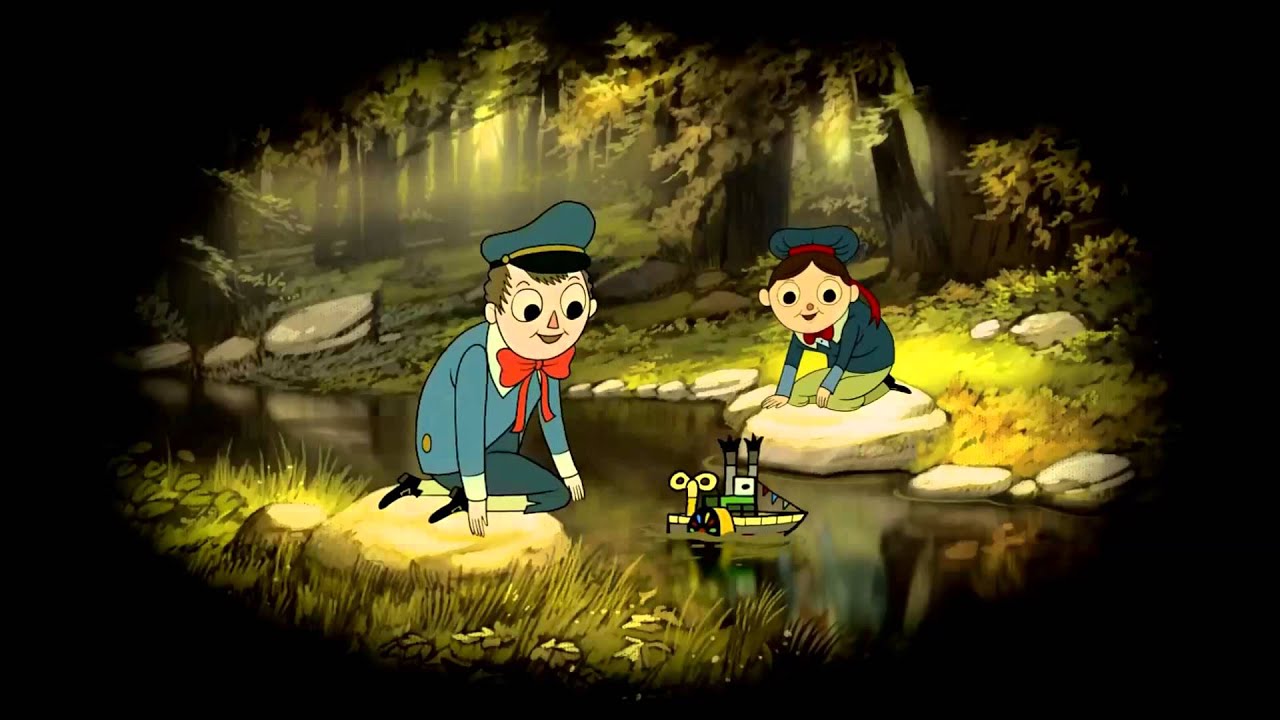 ChestRockwell
4h ago
•
100%
ChestRockwell
4h ago
•
100%
Honestly, shit rocks hard. 80s prog album covers are a huge vibe.
https://en.m.wikipedia.org/wiki/Point_of_Know_Return
My dad had this one, always found it crazy cool looking
 ChestRockwell
2d ago
•
100%
ChestRockwell
2d ago
•
100%
Dems are still trying to win Florida even tho the gusanos in Miami will never be happy.
 ChestRockwell
2d ago
•
100%
ChestRockwell
2d ago
•
100%
Unironically I'd love to help the cooking comrades.
However if we needed a teacher for writing or other humanities stuff I could cover that.
I could also work in the  gulag as a friend for coop play.
gulag as a friend for coop play.
 ChestRockwell
4d ago
•
100%
ChestRockwell
4d ago
•
100%
https://x.com/NaksBilal/status/1846960983748890703
Unfortunately, I think this is probably correct. I saw the news and thought, for a moment, that maybe  could say they accomplished some vague goal and get the fuck out of Gaza. But yeah, that's probably not happening.
could say they accomplished some vague goal and get the fuck out of Gaza. But yeah, that's probably not happening.
 ChestRockwell
4d ago
•
100%
ChestRockwell
4d ago
•
100%
Once again I'll tap the sign
 did a whole episode on it, and it basically hits the stuff you're talking about. One of their early bangers.
did a whole episode on it, and it basically hits the stuff you're talking about. One of their early bangers.
 ChestRockwell
5d ago
•
100%
ChestRockwell
5d ago
•
100%
Dunk is basically on ppl with a following (ben Shapiro).
Dredge is randos on reddit.
 ChestRockwell
5d ago
•
100%
ChestRockwell
5d ago
•
100%
This post is Cheese-Kun approved
 ChestRockwell
5d ago
•
100%
ChestRockwell
5d ago
•
100%
You dropped this king: 
 ChestRockwell
5d ago
•
100%
ChestRockwell
5d ago
•
100%
Blowback season 3 mindset
 ChestRockwell
5d ago
•
100%
ChestRockwell
5d ago
•
100%

 ChestRockwell
7d ago
•
100%
ChestRockwell
7d ago
•
100%
No, totally valid. I used to drive pizzas, so I always make sure to at least fork out $3 because of gas, etc. The nice thing about the job was it was very minimal on the kind of "playing nice" shit - I'd show up, give the person the pizza, get the money. Once I started working as a driver, I realized how much goes into the other tipping professions that I wasn't responsible for (i.e. small talk), so I made sure to take care of them as well. Even though pulling a beer off the draft isn't nearly as difficult as driving to someone's house, the bartender also has to keep an eye on me, make sure to offer a new draft, etc. I think that  at the end of Bullshit Jobs really hits things home with the emotional labor/care work stuff. That's the real value of the waiter - a robot could easily move food 50 feet, but it couldn't tell the customer what's good or not, etc.
at the end of Bullshit Jobs really hits things home with the emotional labor/care work stuff. That's the real value of the waiter - a robot could easily move food 50 feet, but it couldn't tell the customer what's good or not, etc.
 ChestRockwell
7d ago
•
100%
ChestRockwell
7d ago
•
100%
The waiter is doing emotional labor/care work in addition to the transport of food. It's a different kind of work but still work 
We should value both. Indeed, that's why there's always. 3 dollar minimum, even if I'm only getting ten bucks delivered - to recognize the gas, etc used.
Also, remember, in some states those waiters/waitresses make submininun wage and thus need the tip to make up the difference and pay their rent.
Basically, I value both the care and emotional work of the waiter/waitress and the car costs of the driver. As we should as marxists.
 ChestRockwell
1w ago
•
100%
ChestRockwell
1w ago
•
100%
I was there, Gandalf, in 2004 watching Genshiken as it aired. There's a degree of leering but the show does have a bit of a critical eye at least.
Rambly thoughts on anime and the infinite sexualization of the medium.
I feel like the thing about anime that gets exceptionally icky is a product of its animated nature. I can watch Olivia Newton John in the tight leather pants in Grease without feeling like a total creep (though I feel bad because getting into them must have been torture) because she was 30 at the time. Just because the show says she's 17 or 18 does not change the fact she's an adult woman playing a high schooler (same goes for Travolta and the others). The camera's connection to the reality where she's 30 reduces the creepy nature of it all.
Anime though, you can have Yoko from Gurren Lagann who is 14 at the beginning of the show even as she's the object of  constantly. And if she were being played by a 23 year old, it would be gross but not gross in the same way where there's just the choice of the show. And the character designers aren't constrained by "reality" and still choose to sexualize a character they've made underage by fiat. It would be hilarious if it weren't so dark sometimes (Yoko's design is very 'mature' after all - you could have said she was 18 and no one would have questioned it). The reverse is, of course, even worse (2000 year old dragon), but it cuts both ways and I just think its interesting that until Euphoria I feel this kind of grossness was confined to anime. That show, with the age of its cast, feels like it's trying to do the kind of gross service that anime does all the time.
constantly. And if she were being played by a 23 year old, it would be gross but not gross in the same way where there's just the choice of the show. And the character designers aren't constrained by "reality" and still choose to sexualize a character they've made underage by fiat. It would be hilarious if it weren't so dark sometimes (Yoko's design is very 'mature' after all - you could have said she was 18 and no one would have questioned it). The reverse is, of course, even worse (2000 year old dragon), but it cuts both ways and I just think its interesting that until Euphoria I feel this kind of grossness was confined to anime. That show, with the age of its cast, feels like it's trying to do the kind of gross service that anime does all the time.
 ChestRockwell
1w ago
•
100%
ChestRockwell
1w ago
•
100%
Here's my rules of thumb:
Table service 20%
Bar: $1 per drink minimum. If I'm ordering cocktails, usually 2 bucks
Delivery: usually 20%, but with a 3 dollar minimum
Coffee: tips for drinks that are made (latte). For a carafe pull, if I have change I'll toss it in the jar, but no tip off card etc.
I should note that  has a great episode on this. Remember that even though we should hate tipping because it allows the boss to surveil employees and leverage tips against them, refusing to tip is not praxis. We should strive for change where employees are paid more and no longer need tips, but not tipping will not achieve that.
has a great episode on this. Remember that even though we should hate tipping because it allows the boss to surveil employees and leverage tips against them, refusing to tip is not praxis. We should strive for change where employees are paid more and no longer need tips, but not tipping will not achieve that.
 
 ChestRockwell
2w ago
•
100%
ChestRockwell
2w ago
•
100%
Or just feeling the venture bros vibe
 ChestRockwell
2w ago
•
100%
ChestRockwell
2w ago
•
100%
Suzaku's arc in Geass is kinda like this. Of course it's all insane but there's definitely an element of what you're talking about.
 ChestRockwell
2w ago
•
100%
ChestRockwell
2w ago
•
100%
I think that getting a Dem in might be the better accelerationist move since lib states would never do something like this with Mr cheeto
 ChestRockwell
2w ago
•
100%
ChestRockwell
2w ago
•
100%
Wow 20 years since this and Mai-HiME. I remember being on some phb forums back in the day talking about these shows.
I'm a fuckin old snake.
 ChestRockwell
2w ago
•
100%
ChestRockwell
2w ago
•
100%
Stanford band is cool overall. I'm sure there's some libertarian edginess in there, but I am familiar with their game and broadly respect their shit posting
 ChestRockwell
2w ago
•
100%
ChestRockwell
2w ago
•
100%
Need more avatar women who aren't cops. Or avatars with non "K" names.
While perhaps more important in literary circles than political, Frederic Jameson is a very important Marxist who died today. > [I heard someone once say that Jameson is probably singularly responsible for keeping American Marxism on life support during the interregnum by hiding it in the English department. Kind of wild to think that the former now has life again while the latter isn't going to surivive](https://x.com/matthiasellis/status/1837974203313897747) While I don't want to suggest a formal reading club, I wonder if we might just provide some Jameson quotations and our own glosses on them in honor of an important comrade (even if he was, at the end of the day, just an academic and not a revolutionary). To start, I'll provide perhaps one of the most famous (and important) bits from _The Political Unconscious_: >History is therefore the experience of Necessity, and it is this alone which can forestall its thematization or reification as a mere object of representation or as one master code among many others. Necessity is not in that sense a type of content, but rather the inexorable _form_ of events; it is therefore a narrative category in the enlarged sense of some properly narrative political unconscious which has been argued here, a retextualization of History which does not propose the latter as some new representation or "vision," some new content, but as the formal effects of what Althusser, following Spinoza, calls an "absent cause." Here, I think in somewhat dense language, Jameson is really trying to promote history to some term _beyond_ historicity. To put it another way, Jameson's capital "H" History here is the material world before its interpretation by human agents. I think this is borne out by the next (and more famous line): >Conceived in this sense, *History is what hurts,* it is what refuses desire and sets inexorable limits to individual as well as collective praxis, which its "ruses" turn into grisly and ironic reversals of their overt intention. But this History can be apprehended only through its effects, and never directly as some reified force. This is indeed the ultimate sense in which History as ground and untranscendable horizon needs no particular theoretical justification: we may sure that its alienating necessities will not forget us, however much we might prefer to ignore them. Emphasis is mine here. I think that really this gets to Jameson's conception of what material reality is - it's in some sense "beyond" any individual (or even collective) agency but nevertheless we act within and upon it. There's a kind of screen (the screen of Interpretation or representation, which the preceding chapter discusses) that always prohibits our real access to "History" that we are nevertheless part of and embedded in. Anyway, I'd love to see some other passages from comrades. I'll post a couple more as well as I procrastinate this week. RIP to a real one. Abusing my mod powers to sticky this, since he was influential for me.
It's time for the marshmallow roast from the fires of 
Also the outrage of the residents really shows the humanity scale of black and brown people in this country. In summary, death to Amerikkka 
Ok so it's Netflix slop and it shows in the third act, but the journey is generally enjoyable and has a lot of good pigs being pathetic. [From the AV club review ](https://www.avclub.com/rebel-ridge-review) ::: spoiler spoiler >That’s really the genre Saulnier lands on here, complete with a moral clarity about its violence—Terry doesn’t kill, for reasons not precisely stated but perfectly in keeping with his background as well as his pragmatism—that might strike some as insufficiently radical, especially for a filmmaker who has knowingly flirted with exploitation-movie righteousness Personally I wanted at least a few of the pigs to die, though there's definitely some fun wounding/injuring. I wonder if some of the tameness is due to the Netflix slop machine. Still, I think even if the ending is a bit disappointing, the journey makes it clear how corrupt the pigs are and how irredeemable they are. ::: In short 
Folks, [it's good](https://schoolsforchiapas.org/store/coffee-corn-and-agricultural/zapatista-coffee/)! I'm about 2/3 through the 3lb bag I ordered and just threw down for a 5lb. Eventually I need to order some in bulk to save on shipping, but I need to figure out how I'll store multiple bags (I got a large container for the beans)  Some thoughts for the comrades out there: I think my favorite is in the moka pot. It's got a very rich body, a bit of acidity which I like, and still is nice and mellow. However, my daily drip machine also does nicely with it. It's got less acidity in that, more just a mellow and easy to drink blend. I do have an Aero Press, but I haven't tried with that yet. I should bust it out sometime though. Also, it smells fucking phenomenal. Every day when I open the container now, it's like, god damn that's good coffee. In summary, it's [damn fine coffee](https://www.youtube.com/watch?v=Uvs7pmISe8I).
## Format - We're reading 2-3 chapters a week (some are very short). I'm going to be shooting for 50-60 pages a week, give or take. I'm going to be getting page counts from the libgen ebook, so that's why readings will be done by chapter. - Hopefully we'll be done in 7 or 8 weeks - Feel free to get whatever copy you wish, I'll also post onto Perusall for your convenience and highlighting. - I'll plan to post on Wednesday each week with the readings we're discussing and our future schedule as I work it out. I'll also @ mention anyone who posts in this thread in future weeks. ## Resources - Libgen link to an ebook [here](https://www.libgen.is/book/index.php?md5=B20CC6A7700F0BAD84AFF40B3C832BF9) - Here's [Bevins' appearance on Trueanon](https://soundcloud.com/trueanonpod/burn-after-reading), which is part of why I wanted to do this book club - [Perusall](https://app.perusall.com/join/rockwell-rn6m4) – if you want to flag passages for discussion, I'll do my best to check this before I post my weekly post. If people would prefer, I can also make weekly assignments here, but I've opened up the book for access in an assignment or whatever. ## Previous Posts [Week 1](https://hexbear.net/post/1590151) [Week 2](https://hexbear.net/post/1631798) ## Chapter 5 - Short chapter on some movements in the west - Occupy, the movements in Spain and Greece. I feel like Bevins already has made it clear he's more skeptical of these movements in the imperial core, but is perhaps radical consensus (98) a serious barrier to expanding the movement? - Follow up – is this a weakness of prefigurative politics? I'm thinking about that post from the_dunk_tank on Graeber from a few days ago, and are there perhaps limits to prefigurative politics' material effects? - "Discursive Shifts" (99) produced by Occupy, etc., but no real material change. Is this a consequence of the imperial core? Design of cities, suburbs, etc? Thinking forward to BLM, was 2020 the same story, but perhaps even more present to the reactionary mind? - P. 100 - Libertarians for pot, but not willing to engage police, name a more iconic combo. But seriously, we see again a vanguard model in Chile, versus the less effective Brazilian occupying - I feel like Bevins's arguments for a vanguard continue to remain compelling. - We have our first appearance (by my count) of Anonymous. While I love all our posting soldiers here, how "useful" is a digital hactivism strategy? Feels kind of like vaporware (especially with things like wikileaks, etc.) not doing much, but perhaps there's places for stuff like this? - Chilean model – aligning student activism with indigenous activism feels like a really cool strategy, and perhaps are there intersectional/solidarity movements that could be produced in America/the west? Or is this something that just works in the subaltern/developing world? - "She's hot" (103). Should we be finding our hot comrades? Is hasanabi thought vindicated here? On a more serious note though – we need hot people who also have disciplined messaging, and I'm thinking back to that one moderator of /r/antiwork that kind of blew things up by being a terrible messenger. Public facing people have to have skills, I think, is the main takeaway here, and then being hot of course doesn't hurt. ## Chapter 6 - Twitter brain, the chapter. I think the techno-liberation critique has been done before, but any thoughts on Bevins's analysis here on 106-108? - Decentralization, on its own, doesn't really disrupt, I think is the takeaway here, but any other key payoffs? - Two great sickos on page 109 with Sullivan and Kristoff. I was also kind of taken away with the 2009 twitter, and thought maybe something would happen from it (started grad school in 2010 and really was kind of on the border of drinking the kool aid. Stepped away, but seeing this reminds me of a younger me...) - 110 – this page hit hard. "You cannot have Rwanda again because information..." I call bullshit just on the grounds of Gaza today. - Also, things can always get worse ("situations even worse than the governance of a stable authoritarian state..") - Seeing these techno-optimist takes ("The Che Guevara of the 21st Century is the network") really fucking kill me. Coming from Hillary Clinton's state department as well, anyone else taking psychic damage here? I think that seeing the inner mindset of the imperial machine here – their embrace of this stuff – suggests that there's real hard limits on their material/revolutionary effects, but maybe the master's tools can be used to dismantle things? - We also begin to get the reaction to the movements in Egypt - consolidation and the organization of the right against more "liberalizing" forces. - Electoralism appears to take a bit of a L here – any thoughts on what could have been done in Egypt? It also feels like a place where typical "liberal" electoral reforms (ranked choice) might have fixed things but voters are weird freaks - State department and "Gay Girl in Damascus." The psyop stuff here is rather bleak, and I really don't know what to do since my own personal position online is to radically accept people's self-claimed identities, but this stuff is just very classic internet. Bored graduate students larping, the real thing that ruins online discourse. What is to be done about this, I honestly don't know… ## Chapter 7 - This chapter is very bleak to me – the role of cops and paramilitary forces in Brazil really starts to show the forces of reaction churning up. - 118 - the "embarrased right" thing reminds me of the "permanent democrat majority" thinking in America post 2008. Why is this kind of teleological thinking so appealing to liberals? - Putting it another way – how many times do we have to teach this lesson about reactionaries, old man! - The deforestation and getting caught as cost of business (119) is really bleak. I think of all the posts from the official pod of the community about wage theft and firing unionizing employees as well – much of this stuff is already priced in. Can we use the administrative state at all to try and agitate for space for organization, or is this an "accelerationists proven right" kind of scenario? - We see the arrival of conservative/evangelical reaction in Brazil (122). We all know the marxist critique of religion, but I wonder why the prosperity gospel took root in Brazil, since at least some Catholic countries have adopted liberation theology modes within their left groups. - The anti-urban stuff feels very "15-minute cities" and I wonder if Raymond Williams's analysis of country/city might be relevant here… - At the end of the day, this material reality (killers hired to clear land) seems like something you can't really fight with the internet. I feel like seeing the right's willingness to employ violence here really reminds us that Mao is not wrong about power… ## Chapter 8 - Shifting to Turkey now, the inciting incident is the transformation of the urban space (demolition of a cafe and theater). On the one hand, it might feel like this is less immediate than a guy setting himself on fire in protest, but there's something more universal about it I think. However, in the imperial core, there's so few of these places left – the process has basically run its course and there's just Starbucks instead of the local shop. However, I feel like these battles are still worth fighting, if only because there's been dive bars, pubs, and cafes that have loomed large in my life... - I should note there's also another even more immediate concern with the defense of green spaces by environmentalists. I do like the way this protest draws together several groups, but I feel like there's a missing class… the working class, no? - 127 – I think that here we see the "good" side of twitter, allowing for a bypass of state media, but it just feels like such a shitty version of what could be (and perhaps I'm looking with hindsight of 2024 twitter). Still, it feels like it's important to recognize the role of state media and the Consent Manufacturing Machine in the west as well – I feel like Bevins misses a comparison here. - Another great historical dive for Turkey. Not going to say much here except that it's great to have all these glosses. - 129 - weakening the military and strengthening the police seems like something to always watch for. Interesting that this appears to have been part of their "liberalization" though… - We also see here the role of the Saudis in positioning Turkey in the Syria conflict, as well as a player in Egypt and other countries post-protests. - 2013 – we have unplanned protests in Turkey that are drawing crowds and eyes. I think again, the question we should ask, are where are the "hinge points" in this protest movement, since each of these starts with what I feel like are really positive goals/causes. What goes wrong, I think, is what we need to keep watching for. - One good thing is the immediate formation of a kind of hard core – the "Taksim Solidarity" organization seems like a smart move, but I think horizontalism runs into some hard structural barriers again (who is part of this org..) - A strategic question – what's the "line" for groups we should try to broadly engage/incorporate into a strategy of protest/revolt, and where's the line where you kick out nazi scum? Obviously nazis, but what about (for instance) pro pot libertarians? Any more hardcore MLM's got any thoughts on this? Or Ancoms? While solidarity is easy on Hexbear, I feel like this illustrates how hard it is IRL and I'm wondering what is to be done? We don't want to (especially at a hinge point) be so purity focused that we discard useful liberals, after all. Are the Anonymous mask trolls useful in the moment? Where's the line, basically? - I will say, perhaps some of this also reflects the bougie nature of the Turkish protests. - Sports culture – this is actually an insane twist i wasn't ready for. Any thoughts on ultras/hooligans? I wonder if there's a way to build more committed leftist sports groups, as well. - I appreciate the Castro shout out, and I do think not all sports need to be reactionary, so this is very cool. - What can the "petit-bourgeoisie cultural fair" do to better support the hard core people fighting on the front lines of protests like this? - It feels like real human connection comes from being fucked up by cops together – is there any way to forge this though without violence? Class consciousness is just so hard to create… - "the language was nearly identical" – the similarities here are provocative – were the material conditions of neoliberalism allowing this, or is it really something unique to Twitter? - 134-5 - we love to see the intelligensia/PMC coming to the defense of the regime here, absolutely disgusting stuff (and more and more common – love that Gaza consent manufacturing) - The use of the language of the left to shore up the right is definitely a key feature of these protests as well.. - "Who represents us"? This is a key question the chapter ends with, and perhaps again a structural limit of horizontalism... ## Next Week: Chapter 9-11 (ending right at the end of Part 1) [@chicory@hexbear.net](https://hexbear.net/u/chicory) [@Maoo@hexbear.net](https://hexbear.net/u/Maoo) [@Vampire@hexbear.net](https://hexbear.net/u/Vampire)
## Format - We're reading 2-3 chapters a week (some are very short). I'm going to be shooting for 50-60 pages a week, give or take. I'm going to be getting page counts from the libgen ebook, so that's why readings will be done by chapter. - Hopefully we'll be done in 7 or 8 weeks - Feel free to get whatever copy you wish, I'll also post onto Perusall for your convenience and highlighting. - I'll plan to post on Wednesday each week with the readings we're discussing and our future schedule as I work it out. I'll also @ mention anyone who posts in this thread in future weeks. ## Resources - Libgen link to an ebook [here](https://www.libgen.is/book/index.php?md5=B20CC6A7700F0BAD84AFF40B3C832BF9) - Here's [Bevins' appearance on Trueanon](https://soundcloud.com/trueanonpod/burn-after-reading), which is part of why I wanted to do this book club - [Perusall](https://app.perusall.com/join/rockwell-rn6m4) – if you want to flag passages for discussion, I'll do my best to check this before I post my weekly post. If people would prefer, I can also make weekly assignments here, but I've opened up the book for access in an assignment or whatever. ## Previous Posts [Week 1](https://hexbear.net/post/1590151) ## Chapter 2 - Early 00's leftism. We have appearances from Klein, Adbusters, and anti WTO protests. While this isn't going to be the focus of the chapter, perhaps we should reflect on how/why the anti-war movement was so impotent, even in 2003? - Any thoughts on Mayara's or Fernandos's stories? - The 90's punk scene in Brazil was informed, reading "Proudhon, Kropotkin, and Bakunin" - and it really sounds like they were doing some cool praxis ("verdurada" sounds cool to me!). Can we imagine a current version of something like this? Is there anything? Also, shoutout to Anarchic Menstruation, that's a great band name. - Similarly, Graeber makes an appearance here, showing a serious commitment to "doing" the future anarchist society. I feel like perhaps there was a moment when maybe these emergent anarchist movements could have taken the wheel – what held them back? Was it that the internet wasn't yet real life (this was the phbb era, after all)? I'm not convinced that "prefiguration politics" is necessarily bad, but did horizontalism contribute as well? Thoughts? - Same question a different way: Graeber says there's a "rich and growing panopoly of organizational instruments… all aimed at creating forms of democratic process that allow initiatives to rise from below and attain maximum effective solidarity without sifiling dissenting voices." OK, so what happened then? Any thoughts on how/why these tools were never fully realized in political change? - Another Graeber moment worth lingering on - "Anarchists could never be very good at war, but they could flourish in peace." Was the war on terror the end of the brief window? So we see an emergent Anarchism in the 90's in response to the brief "end of the cold war" and "global peace" that quickly loses any chance at becoming dominant due to the global war on terror? - Do we generally agree with Fernando's analysis re: social democracy and the developing world? - Thoughts about Bevins's history of the PT's origins? The ML/Catholic alliance (summoning Jack Chick) is a classic, but I'm just curious - is there any way we could imagine a mass party in the US that aligns religious forces with the left, or is that well impossibly poisoned? My instinct is the latter, but I'd love some thoughts if we want to get into _Hell on Earth_ territory. - Marx being proven right again: "The end of the dictatorship had changed the political system; but the economic structure of society remained largely the same as before the 1964 coup." It's almost as if material conditions matter more than ideological structures.… - Inside neoliberalism are three wolves, according to Fernando – Authoritarinism, Fascism or Technocracy devoid of politics. This feels broadly right, but do we agree that we should defend democracy to protect "classes without property"? I think there's a compelling harm reduction argument, but it is an interesting question – is it worth defending democracy even if democracy doesn't do anything for you? - "Politics, he lamented, ad become _marketing_." This is why the forum podcast is _Citations Needed_. Is this trend worse? Why or why not? Any interventions we can imagine to break the deadlock if we want to defend democracy? - The Salvador student movement and bus protests perhaps show an important lesson that we might continue to see going forwards – which demands do you take to avoid fracturing the coalition? Any thoughts on the strategy of the PCdoB? - Bloomer notes – how do you keep the momentum so you can "win" the next time the issue comes up if you have compromised? - Direct action gets the goods, and what can we learn from the MPL? How do we feel about consensus politics here? What about Horizontality (either in the MPL organization or in Argentina in 2001) - End of history - we know it, love it, and might have listened to the _If Books Could Kill_ episode on it. Any thoughts on Bevins's analysis of it (and the first world neoliberal turn of the 90's and early 00's)? MLK's analysis of the white liberal appears here as well, and I think Bevins's double vision in this chapter between the developing world and first world is interesting, especially when we consider the "ideology of progress" and teleology of western liberalism. Thoughts on his comparisons? - To return to a question above, was the "End of History" a missed window for Anarchists? If we had 2000's era internet in 1990, might things have been different? - Bevins is doing a bit of cheeky political theology here, any critiques? I'm glad he uses Lowith instead of Schmitt, but any further thoughts on the role of religion in these teleologies? Alternatively, the orientalism/Islamophobia of the 90's neoliberal movement is coming up as well, and we could perhaps reflect on the role of this new "other" before the global war on terror fully organized the post-end-of-history moment. ## Chapter 3 - Any thoughts on Bevins's account of Lula's government over the 00's? Also, Bevins's frank assessment: "This was not the realization of the socialist revolution..." etc. - Great materialist analysis for how kids moving abroad and becoming correspondents reproduces "neocolonial dynamics." Too bad there's no names he calls out though. - Tiririca – what do we think about the absurdist electoralism? This feels very of the late 00's moment (think peak Stewart/Colbert). Is this a good strategey? - However, we're going to pause on Brazil here – so any last thoughts on the MPL or Brazillian leftism in 2011 before we turn to Tunisia and the Arab Spring? ## Chapter 4 - I'll just say that I really like Bevins's turn to longer historical roots, especially since while I know the broad strokes of decolonization in Africa, I'll admit I know jack about Tunisia, so this little primer was helpful. - Can I just say the phrase "activated their Leninist cadres" sounds really cool? But also, what can we learn of the success in mobilizing here? Compare, perhaps, to protests in 2020 (around, similarly, an outrage and death)? - I appreciate also Bevins's accounts of the cost (physical/human) of protest. Something to consider here and going forwards - how do we prepare ourselves (and our comrades) for the potential violence that will be unleashed upon them? - Any thoughts on the events of the Tunisian revolt? Unionism seems to be a key factor in my read, but any other thoughts here? - And now we turn to Egypt and Tahir Square. Again, Bevins with a bit of a flashback for us first, anything here we want to draw attention to? - Neoliberal "reforms" fail to deliver democracy, who would have thought.… - 78 - Bevins notes that the protest group Kefava "flowered into this small space Mubarak opened for legitimate civil society, as well." While we know civil society doesn't equal a communist or anarchist one, is it worth fighting for it as anarchists/communists/socialists/leftists on the grounds these spaces allow for organizing? Or are they too easily manipulated? - Also, strikes and organizing continue to play a role – is this, perhaps, the real "driver" of change, rather than protest? - There is also, again, a victim/martyr, Khaled Said. How important is this, and why is it that (as just one example) George Floyd didn't translate to any real change? Media apparatus? Shitty first world people? Lack of the strike/organizational infrastructure? - I can't help but feel there was a real window here for change in a better direction - the mass movement, the "people and the army are one hand" (82). Any "hinge points" that we can locate going forwards? Any alternative narratives we want to emphasize here too? Bevins is being pretty optimistic about these early days (and to be fair, it was a vibe). - 82 – I like how Bevins is clear eyed that this was not a nonviolent protest (indeed, there's a shift from protest to battle here) - 82/83 - the refusal of the people/protestors/revolutionaries to "take anything" but retreat back to Tahir Sqare. Bungle? Or smart? Thoughts? Is this the legacy of Occupy, perhaps? - Was it perhaps just that the State Department got caught flat footed and the media took the initiative here? There's definitely a way to read P.84 and on that way, but I'm not entirely sure that's the case.… Also, the media's shoehorning of their own narrative perhaps suggests some consent manufacturing was going on, even if there's not a coordinated effort.… - Horizontality and leaderlessness returns here, but how do we feel about "we were anarchists, without knowing we were anarchists" versus our Brazillian punk rockers who are reading Kropotkin and co? - I will say here on P.86, there's an important caveat to protest repression/fighting that Bevins recognizes - you need to have someone who's willing to say "enough" and do a coup/grab the leash – generals have to refuse to fire on protestors, basically. - Lybia and Syria, time for some big Obama L's. Bevins suggests there's a "critical mass" of sorts that Egypt and Tunisia achieved that Lybia and Syria didn't – let's attend to this section a bit. - LOTR comparisons are less cringe than Harry Potter, but oof here - Bevins being clear-eyed about "no-fly zone"'s meaning and consequences here. Also, the TrueAnon Rule is affirmed "If you have weapons of mass destruction, don't give them up." Are the lessons "learned" from Lybia perhaps at play in why protest has become less powerful as well? - Any thoughts on Syria here? Bevins is pretty short, though perhaps because there was never a true mass movement here, but he's pretty quick to just move past it (perhaps because it's "sectarian"?) - Bahrain and a bit of a "throwback" (indeed, unaccountable monarchy is very old-school) here. The saddest part is it does feel like this would have been the "answer" to sectarian collapse, but the lack of air is clearly a weakness of protest movements here. Anything we should note and watch for in terms of what happens here? Any thoughts on the US foreign policy implications Bevins attends to? ## Next Week: Chapters 5-8 [@chicory@hexbear.net](https://hexbear.net/u/chicory) [@Maoo@hexbear.net](https://hexbear.net/u/Maoo)
 www.youtube.com
www.youtube.com
Show is very fun, with just wholesome torture and reactions. Yes, the entire show is just the same bit, but it's a fun bit and entertaining. 
Hi Folks, I'll be posting the format and resources at the top here each week. Scroll on down for discussion questions! I'm going to have, perhaps, a few more this week since we're getting a sense for Bevins's argument, scope, and interests. If you want me to provide this many every week, just let me know, otherwise I'll probably start trimming back, before the last couple weeks just leaving it up to everyone in the conversation to pose questions/discussion topics. Also, *please feel free to add additional questions, areas for discussion, etc. as you please*. I'm providing some starting points, but if there's things that you notice I've missed/want to talk about -- I'm very interested in any conversations people want to have. ## Format - We're reading 2-3 chapters a week (some are very short). I'm going to be shooting for 50-60 pages a week, give or take. I'm going to be getting page counts from the libgen ebook, so that's why readings will be done by chapter. - Hopefully we'll be done in 7 or 8 weeks - Feel free to get whatever copy you wish, I'll also post onto Perusall for your convenience and highlighting. - I'll plan to post on Wednesday each week with the readings we're discussing and our future schedule as I work it out. I'll also @ mention anyone who posts in this thread in future weeks. ## Resources - Libgen link to an ebook [here](https://www.libgen.is/book/index.php?md5=B20CC6A7700F0BAD84AFF40B3C832BF9) - Here's [Bevins' appearance on Trueanon](https://soundcloud.com/trueanonpod/burn-after-reading), which is part of why I wanted to do this book club - [Perusall](https://app.perusall.com/join/rockwell-rn6m4) – if you want to flag passages for discussion, I'll do my best to check this before I post my weekly post. If people would prefer, I can also make weekly assignments here, but I've opened up the book for access in an assignment or whatever. Week 1 Questions ## Introduction - Thoughts on Bevins' depiction of the assault on protesters in Sao Paulo? It's obviously a gripping start, but what do we make of his conclusions that this was "something new"? Also, perhaps most interesting to me - his argument there's a direct connection between the protests of 2013 and the rise of Bolsinaro. - Solidarity, affinity, and mutual recognition seem to be the core of the "protest" story that Bevins is telling, but clearly there's limits to the connection of the internet. Is internationalism possible? How do we balance local concerns (and differences) against sentiments like "Turkey and Brazil are one" which would have been wonderful if both didn't end up reactionary regimes at the end of the decade. Clearly Bevins plans to go into detail on some of these questions, but any thoughts right now while he's putting it all out there in his intro? - "A certain set of approaches were morally and tactically privileged from 2010 to 2020. To varying degrees you often heard that these were leaderless, 'horizontally' organized, 'spontaneous,' digitally collaborated mass protests in city streets of public squares. They took forms that were said to 'prefigure' the society they were meant to help bring about" (14) Are we still stuck in this paradigm? Or are we moving beyond it? Also, why is it so difficult to go outside, comrades? - On that note, Bevins' argument, as I see it: "And then after a set of actions is taken, it is a very different and quite treacherous journey entirely to correcting the injustice, or to improving society. That last part has been tricky to get right since 2010. It was my hope that by carefully analyzing that chain of human decisions and consequences, and by looking at the events of the decade in chronological order, some lessons might emerge." Let's use this as a guiding principle. What can we, as leftists on Hexbear take from this? I think that we should perhaps approach this with two goals in mind: - Think about tactics and strategy as leftists – what's worth keeping from the 2010-2020 decade of protest? What should be rejected and fought against? - A list of potential rules/strategies/ways forward that we find in this book that we can bring to our own orgs, friends, etc. Think of it as a new list of "Trueanon Rules" perhaps that we could compile from Bevins's journalism? - Some additional material on Bevins' methodology: - Key questions: "What led to the protest explosion? What were its goals? Were they achieved? If they weren't achieved, why not? - Followups: "What would you tell a teenager in Tanzania or Mexico or Kyrgyzstan, who may live through a political explosion, or might attempt to change life in her country? What lessons would you draw from your own experiences and impart to them? - Understanding people on the ground vs. _longue duree_- what do you all think of it? Is this, perhaps, a strategy guide for "Weeks when decades happen"? Does this sound useful for us? - Bevins' criteria/scope: I like them, but do you think there's any blind spots in ignoring the First World? - Any other spicy takes on this intro? It's pretty standard for a book like this (indeed, the main advantage it has over the "If Books Could Kill" canon is that at least the opening anecdote actually happened and is relevant to the topic!), but if there's stuff you want to discuss further, go for it. - Finally, some people forgot the trueanon rule: "Never talk to journalists, they're just like cops." Bevins seems cool so far though, so we'll give him (and the people who talked to him) a pass for now. ## Chapter 1 - There's definitely something of a Benjaminian argument in the first pages of the chapter. I'm actually writing as I read so he might actually cite "The Work of Art in the Age of Mechanical Reproduction" at some point here, but regardless, to what degree do we agree with his media technology argument (his footnote is just Plato in the _Phaedrus_, and he cites Anderson's _Imagined Communities_)? His argument that protest doesn't make sense without mass media is, generally, compelling I think, but do you all agree? - More broadly: How "deterministic" are these technologies and how much agency do we have to guide/grasp hold of them? How do we move towards the "new" forms of protest/resistance/exercise of power that we don't yet know? - Obviously this is broad historical background (table setting, of sorts, for the meat of the book) as well as a contrast to the upcoming focus on non-First World areas, but is there anything useful in the New Left movements that Bevins describes here? Any strategies or lessons from 21-28 that are still today? Especially when taken in contrast with Lenin's approach, what stands out? - One question that, perhaps, we should consider, is the "onboarding" of new members in response to mass growth - how do you do it without compromising/losing your organizational structure/cohesion? SDS getting flooded is an interesting story that might well allow us to consider this past year's integration into the Fediverse more generally (though we don't need to deeply consider this meta convo, I think there's an interesting echo/rhyme here). (P.24) - Another historical note I like is the attention to the material conditions of Tsarist russia - the "particular set of skills" that your environment creates. - I've worked on figuration/prefiguration, so if anyone is lost here, just holler and I'll try to gloss this section as clearly as possible (though I honestly think Bevins does a great job). - Old Left (29-36) – A lot of classic Hexbear and Trueanon favs/bits here. What's one thing you'd take away from the Old Left strategy (either in Europe or the Third World)? - Fun question - how much of this story do you think the average lib knows? - Revolutionary Truisms (30) – any of these ringing true to you? Ones to emphasize? - I think at this moment it's also appropriate to attend to Bevins's brief recapitulation of the specific strategies around the middle east (33-34). It's short, but I like he acknowledges the role of US policy in Egypt's experience of 68. - 68 more generally. This is another "failure" of revolution, what do we make of Bevins's analysis? - At the end of this section, Bevins returns to the role of media - here in papering over the trauma of 68. How do we learn from these moves by the dominant culture/ideology? - The fall of the soviet union and the myth of "clamoring for the arrival of capitalism" (38). How do we like Bevins's history here? Also, is this perhaps another "prefiguration" of the kind of thing Bevins saw unfolding over the 2010's? What can we take from this account? Anything that jumps out at you? - Defining neoliberalism - any critiques of this working definition? ## Next Week's Readings (1/17) -- Chapters 2 - 4 [@chicory@hexbear.net](https://hexbear.net/u/chicory) [@Maoo@hexbear.net](https://hexbear.net/u/Maoo)
## Format - Reading 2-3 chapters a week (some are very short). I'm going to be shooting for 50-60 pages a week, give or take. I'm going to be getting page counts from the libgen ebook, so that's why readings will be done by chapter. - Hopefully we'll be done in 7 or 8 weeks - Feel free to get whatever copy you wish, I'll also post the ebook onto Perusall for your convenience and highlighting. - I'll plan to post on Wednesday each week with the readings we're discussing and our future schedule as I work it out. I'll also @ mention anyone who posts in this thread in future weeks. ## Resources - [Libgen link to ebook ](https://www.libgen.is/book/index.php?md5=B20CC6A7700F0BAD84AFF40B3C832BF9) - If you want to get a sense for what's coming, [here's Bevins' appearance on Trueanon, ](https://soundcloud.com/trueanonpod/burn-after-reading) which is part of why I wanted to do this book club - [Perusall ](https://app.perusall.com/join/rockwell-rn6m4) – if you want to flag passages for discussion, I'll do my best to check this before I post my weekly post. If people wish, I can also make weekly assignments here, but I've opened up the whole book in one assignment so that people can read at their own pace. A bit more on my motivations: I'm writing a paper on protest (and its failures) so I actually wanted to incorporate some of Bevins' work. I'll probably post some questions and thoughts of my own to get our discussion started here, along with anything anyone submits to the Perusall site. I figure for our first meeting, we'll do the Introduction and Chapter 1. **Post here if you're interested in participating so I can @ you once we start** I figure I'll post the first discussion next week, as long as folks are ready for it. Otherwise, I'll wait until the 17th.
Excited to try. What are you preferred brewing methods for this stuff. Does it go well in a moka pot? I have a boring drip machine for my day to day, but have you done any aeropress or other methods with it that are wildly delicious? Also, any other good coffee roasters out there worth supporting? 
 inthesetimes.com
inthesetimes.com
Article I saw thanks to a repost from Nima  . Shitting on Red Scare is something I'm always here for. I think the core is this: >Maybe there’s a kind of gravity to the slide, the black hole of fascism sucking toward it all the loose particles of those whose commitments were never complex or whose convictions were snapped by despair. And the accusation that arises with almost every left-to-right slider, that they’re sell-outs, just doing it for the money? Yes, some are. Yes, and—because even when it starts that way, the transaction is transformational.
 thegreatvorelli.bandcamp.com
thegreatvorelli.bandcamp.com
Some Blowback Bloomer music for you all.        
 youtu.be
youtu.be
I'm up to episode 6, lullaby in frogland. This is where it really kicks off imo. Show is so good folks.
 youtu.be
youtu.be
It's hard to keep the faith sometimes comrade. Just remember, you're not alone. 
 shopblowback.com
shopblowback.com
Get your tactical espionage podcast merch.
 youtu.be
youtu.be
Song is pretty based tho
Is it ok for a Beaver to post in this comm? I'll take the lower bunk. Hoping we rematch in the PAC 2 championship round 2.
>he has eaten the pancake